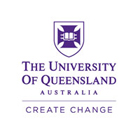- 最新资讯及文章
- Find usIDP AustraliaIDP BahrainIDP BangladeshIDP CambodiaIDP CanadaIDP ChinaIDP EgyptIDP GhanaIDP Hong KongIDP IndiaIDP IndonesiaIDP IranIDP JordanIDP KenyaIDP KoreaIDP KuwaitIDP LebanonIDP MalaysiaIDP MauritiusIDP Middle EastIDP NepalIDP New ZealandIDP NigeriaIDP OmanIDP PakistanIDP PhilippinesIDP Saudi ArabiaIDP SingaporeIDP Sri LankaIDP Taiwan, ChinaIDP ThailandIDP TurkeyIDP UAEIDP VietnamIDP Corporate
- Social
- 简体中文
- Where we operate
- Courses
- Scholarships
- IELTS
- About IDP
- 留学生活服务
- 最新资讯及文章
- Find us
- Find us
- Find nearest IDP offices
- IDP Australia
- IDP Bahrain
- IDP Bangladesh
- IDP Cambodia
- IDP Canada
- IDP China
- IDP Egypt
- IDP Ghana
- IDP Hong Kong
- IDP India
- IDP Indonesia
- IDP Iran
- IDP Jordan
- IDP Kenya
- IDP Korea
- IDP Kuwait
- IDP Lebanon
- IDP Malaysia
- IDP Mauritius
- IDP Middle East
- IDP Nepal
- IDP New Zealand
- IDP Nigeria
- IDP Oman
- IDP Pakistan
- IDP Philippines
- IDP Saudi Arabia
- IDP Singapore
- IDP Sri Lanka
- IDP Taiwan, China
- IDP Thailand
- IDP Turkey
- IDP UAE
- IDP Vietnam
- IDP Corporate
- Social
- 切换语言

地点
Australia
资格
Dual Degree
费用
AUD48160
(2025)
时长
4 Year(s)
下个学年
20 February 2025
入学成绩
6.5
IELTS考试COURSE_INFO
Take your academic abilities and analytical prowess to the next level in your chosen field of commerce, while developing interdisciplinary knowledge and key practical skills in your preferred scientific passion. This dual program combines thorough understanding in business and commerce with comprehensive knowledge of scientific principles and practices. During the commerce component, you'll build a solid foundation of business skills you can apply to the many challenges of the contemporary business environment. You'll develop your business acumen, financial literacy and data analytical skills while studying majors including accounting, business information systems, business analytics and finance. At graduation, you'll be prepared for many career options in fields like accounting, financial management, banking and information systems. Your science study offers one of the broadest selections of disciplines in Australia, enabling you to develop your interdisciplinary scientific knowledge and practical skills, while pursuing studies that suit your interests and ambitions. You'll also have the chance to gain relevant, real-world experience through employability and work-integrated learning, graduating with highly developed knowledge in your specialist area, superior technical abilities, and advanced independent thinking and communication skills.
Statistics is an essential part of science, providing the mathematical language and techniques necessary for understanding and dealing with chance and uncertainty in nature. Statistics involves the design, collection, analysis and interpretation of numerical data, with the aim of extracting patterns and other useful information. Examples include the analysis of DNA and protein sequences, the construction of evolutionary trees from genetic data, the improvement of medical treatments via experimental designs, and the assessment of drought conditions through meteorological data. A main feature of statistics is the development and use of statistical and probabilistic models for random phenomena, which can be analysed and used to make principled predictions and decisions. Examples of such models can be found in biology, finance, physics, medicine, telecommunications, and reliability to name but a few.
Statistics is an essential part of science, providing the mathematical language and techniques necessary for understanding and dealing with chance and uncertainty in nature. Statistics involves the design, collection, analysis and interpretation of numerical data, with the aim of extracting patterns and other useful information. Examples include the analysis of DNA and protein sequences, the construction of evolutionary trees from genetic data, the improvement of medical treatments via experimental designs, and the assessment of drought conditions through meteorological data. A main feature of statistics is the development and use of statistical and probabilistic models for random phenomena, which can be analysed and used to make principled predictions and decisions. Examples of such models can be found in biology, finance, physics, medicine, telecommunications, and reliability to name but a few.
- 奖学金 查看所有奖学金
- 实习
入学要求 昆士兰大学
Queensland Year 12 (or equivalent):
General English subject (Units 3 & 4, C)
Mathematical Methods (Units 3 & 4, C)
one of Biology, Chemistry, Earth and Environmental Science, or Physics (Units 3 & 4, C)
International Baccalaureate Diploma - 30
IELTS overall 6.5, reading 6, writing 6, speaking 6, listening 6. For other English Language Proficiency Tests and Scores approved for UQ
TOEFL IBT - Overall 87, listening 19, reading 19, writing 21 and speaking 19.
General English subject (Units 3 & 4, C)
Mathematical Methods (Units 3 & 4, C)
one of Biology, Chemistry, Earth and Environmental Science, or Physics (Units 3 & 4, C)
International Baccalaureate Diploma - 30
IELTS overall 6.5, reading 6, writing 6, speaking 6, listening 6. For other English Language Proficiency Tests and Scores approved for UQ
TOEFL IBT - Overall 87, listening 19, reading 19, writing 21 and speaking 19.
申请截止日期
申请截止日期无法使用 与升学顾问对谈 了解更多细节资讯
Further information
If you aren't eligible for the above entry requirements, you might ant to explore pathway options at 昆士兰大学. If you want to find out more, speak to our counsellors.
推荐给你
- 大学
- Australia
- 资金类型: Fee waiver/discount
- 大学
- Australia
- DEADLINE: 11 Feb 2025
- 资金类型: Fee waiver/discount
- 大学
- Australia
- 资金类型: Fee waiver/discount
- 大学
- Australia
- 资金类型: Fee waiver/discount
- 大学
- Australia
- 资金类型: Fee waiver/discount
Your action plan
步骤 1
Shortlist your courses
Choose the best three courses you’re most likely to pursue.
步骤 2
Check your eligibility
Get an instant in-principle offer for courses with the IDP FastLane tag.
步骤 3
Apply through IDP Live
Fill out the form once and use it to apply to multiple courses.
IDP FastLane 如何运作?
通过FastLane的「原则性录取通知」,你将在几分钟内知道自己是否获取录!
选择一个院校机构和课程
建立你的学术个人档案
提交你的《原则性录取通知》申请
你选择的机构将会在几分钟内发送结果!
与升学顾问一起准备申请





